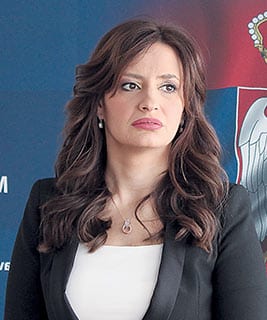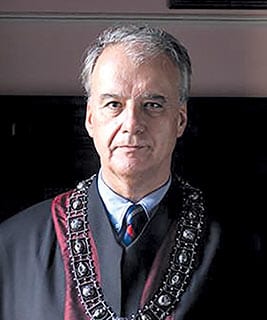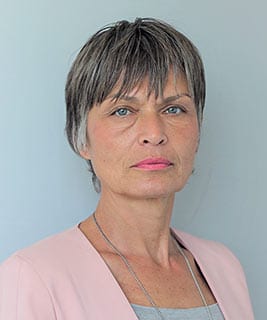In a society where there is a belief that there are “selected taxpayers” with whom there is a discrepancy between reported revenues and acquired assets, there is a justified need for such cases to be investigated. The choice of the way we will do this tells us a lot about the social values we want to promote
Discussion is continuing in public about whether the new law on determining the origin of assets and special tax (currently in draft form) represents proof of the maturity of the authorities to finally carry out a cross-check examination of tax fundamentals that have been promised for decades, or whether it’s the product of the administration misdirecting its energy, given that there is already a Law on Tax Procedures and Tax Administration (ZPPPA) that envisages this.
Will the more modern pre-existing solution be replaced with a retrograde one; should the ideas from the new draft enrich and supplement the existing law, or are we on the road, with this new law, to take another beating from the authorities, who strike selectively and at their own discretion? The opinions of the experts with whom we spoke illustrate various views regarding this tax issue.
 Nela Kuburović
Nela Kuburović
Serbian Minister Of Justice
We Want A Law That Will Be Just And Efficient
With The New Law, A Completely New Method Of Cross-checking Assets Will Be Introduced And Special Tax Units Will Be Established To Deal With This Process. The Legislator’s Intention Is To Adopt Legal Acts That Will Be Effective In Implementation, Which Was Not The Case With Existing Legislation
Although we’ve all witnessed announcements of the required adoption of a law on the origins of assets over the past two decades, it is a very interesting fact that the question of the validity of adopting this law was only posed after the Ministry of Justice published the first text of the Draft.
The fact is that the existing Law on Tax Procedures contains provisions that allow for the cross-checking of property, but which have never come to life into practice. The primary reason for this is that these provisions were not sufficiently elaborated, then there was no obligation for state authorities possessing relevant information for determining the origin of assets to share that information efficiently, and as such, they remained dead letters on paper.
The Law on Tax Procedures and Tax Administration for determining the tax on regular annual income envisage two ways of determining tax fundamentals – the comparative method and the cross-check examination method. The first method involves determining tax fundamentals on the basis of financial statements, turnover existing throughout the year, and this is the method almost always applied by the Tax Administration. The second method is cross-check examination, which has absolutely no punitive character even if it is applied and a discrepancy is found between reported revenue and what the Tax Administration determines.
In the case that it is established during the procedure of investigating the origins of property that there are grounds to suspect assets were acquired through a criminal offence, this law does not exclude the possibility of criminal prosecutions or confiscations of assets
The Law on the Origins of Assets and Special Tax is an attempt to elaborate provisions on the cross-check assessment of tax fundamentals that exists in the Law on Tax Procedures and Tax Administration, which was adopted in 2002. The aim of the Ministry of Justice and the Ministry of Finance is to produce high-quality acts that can be applied in practise, and the Law on the Origins of Assets and Special Tax should enable such effective implementation.
The draft law introduces a completely new method of cross-checking assets, as well as a new procedure of the special tax unit that will deal with this process. The intention of the legislator is to adopt new legal solutions in such a way that they will be enforceable and will prescribe mandatory coordination and cooperation between different institutions, which may have relevant information for determining someone’s actual assets.
It is very important to point out that this law does not exclude the possibility of criminal prosecutions or confiscations of assets in the case that it is established during the procedure of investigating the origins of property that there are grounds to suspect assets were acquired through a criminal offence. In that case, the Tax Administration is obliged to inform the competent public prosecutor’s office accordingly and to provide information regarding the case.
 Dejan Popović, PhD.
Dejan Popović, PhD.
Faculty Of Law, University Of Belgrade
Intention Good – New Law Superfluous
I welcome the government’s readiness to secure the “activation” of cross-checking assessments of assets, but I consider the adoption of a special law as superfluous because most of the relevant provisions to do this already exist but aren’t being applied
In a society where the predominant belief is that the tax system is unfair because “important” taxpayers effectively avoid paying taxes, it is essential to conduct controls over whether an asset has been acquired as a result of the accumulation of previously taxable income. If there is a discrepancy between the income the taxpayer reported to the tax authorities, as well as in the income that they did not have to declare, but was taxed on the basis of deductions (such as dividends), on the one hand, and increases in assets, on the other, the origin of such an increase should be re-examined. Specifically, this is either a gift or an inheritance, or it is a case of undeclared income. Such a cross-check assessment of tax fundamentals has already been regulated in the ZPPPA, but that provision has not been applied since 2003. I think the government’s readiness to provide “activation” of cross-check assessments should be welcomed, but the adoption of a special law to determine the origins of assets and special tax is superfluous, as the existing provisions of the ZPPPA contain the majority of that which is necessary to achieve the desired goal.
If the political will to address cross-check assessments really exists, the idea of forming a special unit within the Tax Administration should be taken from the Draft and its provisions incorporated into the ZPPPA. It must be ensured in doing this that this unit does not “jut” out of the system of norms regulated by the Tax Administration, the state administration generally and the judiciary. According to the Draft Law, specifically, certain state bodies and agencies, as well as the National Bank, are obliged to assign staff members for connecting with the Unit of the Tax Administration, who may be transferred to work in the Unit. This is contrary to the constitutional principles upon which the National Bank operates, whose employees cannot be subjected to such treatment as though they are civil servants. The Draft also envisages that judges of the Administrative Court who will preside over administrative disputes regarding special tax must have completed training at the Judicial Academy. The Administrative Court has not been specialised to date.
The Draft stipulates that – only in connection with the special tax that is being introduced – a specific circle of specialised judges of the Administrative Court be trained, the composition of which will be determined by the Judicial Academy, which is largely controlled by the Ministry of Justice. If they desire a specialised administrative judiciary, that will be regulated by the Law on Administrative Disputes. Finally, care must be taken to avoid the trap of lacking precision in norms, which the creator of this Draft (consciously or not) has fallen into, allowing the taxpayer to file a tax return for previously unreported income in the control procedure conducted by the Tax Administration and then pay the tax: thus they will neither pay the special tax of 75% nor be held criminally accountable.
 Đerđ Pap
Đerđ Pap
Lawyer and Tax Advisor, Director of Fiskal Pro d.o.o.
This is a Step Backwards
This is a step backwards for the consistency of the legal system, it is always better for the will of the authorities to be realised within the framework of systemic regulations and over the long term. And in that, the Institute of “cross-check assessment of tax fundamentals” has advantages compared to the Institute of “determining the origins of assets”
I don’t think it’s necessary. Cross-check assessments of tax fundamentals is practically another name for determining the origins of assets. Alongside that, cross-check assessments are a more contemporary, more modern institute that is familiar to many European legal systems. In our tax system, the adoption of the Law on Tax Procedure and Tax Administration was implemented in 2002, meaning 17 years ago. Throughout all this time, however, this institute – for some unknown reason – was either not applied or was applied at the level of a statistical error. I witnessed directly that plenty of effort and material resources of both the state and taxpayers were invested in preparations for its implementation. We all remember that the state, first in 2003 and later also in 2013, invited all citizens who have assets worth more than 300,000 euros to file an appropriate application accordingly. These applications were supposed to be the first step towards a future consistent application of instituting cross-check assessments of tax fundamentals. Cross-check assessments should have encompassed all those who did not register their assets worth more than the cited figure, but also those who submitted the application – in the case that the value of the assets increases disproportionately in relation to legal revenues after the filing of their tax return. However, there is no reliable information on how many cases (if any at all) cross-check assessment procedures have been initiated.
It is not good for the legal (and tax) system of a state that wants to be contemporary to implement regulations that we can say are extraordinary and (probably) have a limited duration of applicability
In all likelihood, all the effort exerted by the state and taxpayers around the registering of assets worth more than 300,000 euros (in two sweeps) was a shot in the dark and a waste of time. In 2013 some 3,369 applications were submitted, which is not a small number. A great deal of effort was required to complete such a large number of applications, but also effort to take receipt, register, defer etc., on the part of tax officials. The draft law on determining the origins of assets and special tax envisages that its adoption will end the validity of the article of the Law on Tax Procedures and Tax Administration regulating cross-check assessments of tax fundamentals, which means that instituting this will be completely erased from the legal system, and which, I think, is a step backwards, because we’re erasing a modern legal-tax institute that is applied in modern tax systems on a daily basis.
Apart from that, I’m also of the opinion that it is not good for the legal (and tax) system of a state that wants to be contemporary to implement regulations that we can say are extraordinary and (probably) have a limited duration of applicability.
For the consistency of the legal system, it is always better for the will of the authorities to be realised within the scope of systemic regulations and over the long term. And in that, the Institute of “cross-check assessment of tax fundamentals” has advantages compared to the Institute of “determining the origins of assets”.
 Dr Milan R. Kovačević
Dr Milan R. Kovačević
Foreign Investment Consultant and a Full Member of the Scientific Society of Economists of Serbia
No Use Comes of Correcting the Past
In political conflicts, the idea of investigating assets is very appealing, but essentially instead of seeking money from the past, it is better to focus on improving the tax system and improving tax collection flows
Only older people will remember that there was a law on the origins of assets in Yugoslavia in the 1970s. It was intended to check the private property in conditions of social rule, but even that didn’t succeed. Of the states emerging out of Yugoslavia, only Serbia is brought back that idea of a one-off tax.
In 2001, Serbia passed the Law on the one-off tax on additional income and additional assets acquired through the exploitation of special advantages, with the application until its entry into force, sharp progressive taxation of 30 to 90%. I sought the contesting of such a time limit and the Constitutional Court adopted it only in 2011 so that law has been applicable for 18 years already. And it has had practically no effect, and damage can be caused by a law that is not enforced. And the ZPPPA has long contained the authorisation for the tax administration to assess tax fundamentals through the method of crosscheck assessments of taxable income on the basis of a taxpayer’s increased assets above taxable income. It also prescribes mandatory registrations with the tax administration of assets of private individuals and entrepreneurs worth a total exceeding RSD 20 million. The Tax Administration was granted the possibility of using the cross-check assessment method to determine taxes from the start of 2003 until the end of 2005, but nothing came of that.
In political conflicts, the parties mention thieves and make accusations against tycoons, so the idea of checking the origins of assets is appealing. The conclusion was reached that it was politically advantageous to finally pass a law that would determine assets and levy a special tax. Although it is already clear from experience that there is no lack of tax regulations, it is necessary to improve them and, above all, to better implement them. Tax evasion is high.
It’s for good reason that we have the saying ‘don’t leave for tomorrow that which you can do today’. There’s no justification in exerting effort and money to sift through the past. These resources should be used to improve the tax system and improve tax collection flows. The ZPPPA has already stipulated that the right of the tax administration to determine and collect tax and ancillary tax contributions will be outdated in five years. And the rule in the Constitution is that laws and all other general acts can not have a retroactive effect, with the exception of cases when that is in the general interest, which is not the case here.
 Milica Bisić
Milica Bisić
Professor of Public Finance and Fiscal Policy at the Faculty of Economics, Finance And Administration (FEFA)
Taxation Should Not Be Equated With Punishment
Some articles of the draft law require, in essence, complete arbitrariness in the choice of the subject of control, on the one hand, and, on the other, a very careful choice of the person who will carry it out and the judge who will ultimately bring a judgement. Additionally, with the introduction of a “special tax”, which borders on expropriation with the level of its rate (75%), the draft law determines tax as a punishment
In principle, the adoption of any law is necessary either when the subject is not regulated at all or if existing laws don’t regulate in a sufficiently positive way. Likewise, it is possible that the authori – ties want to treat a particular individually and separately. From the rationale applied by the Draft, it follows that this is precisely the desire of those proposing its adoption.
The Draft separates the method of determining undeclared income from regular tax procedures and prescribes a special punishment for this deed (unfortunately called a special tax), irrespective of whether or not the criminal offence of tax evasion is to be proven in the criminal proceedings that can follow. With this, the provision on cross-check assessments of tax fundamentals is erased fr om from the ZPPPA and the obligation of r egularly checking (un)reported taxable assets is changed to become a special and separate task of the Tax Administration.
Does the draft eliminate the reasons why cross-check assessments of tax fundamentals were not applied from 2002, when the zpppa was introduced, to this day? Hardly!
Does the Draft thus eliminate the reasons why cross-check assessments of tax fundamentals were not applied from 2002, when the ZPPPA was introduced, to this day? Hardly! Firstly, the articles of the Draft that replace this provision of the ZPPPA are, to put it mildly, indeterminate. Secondly, the articles that supplement it require, in essence, complete arbitrariness in the choice of the subject of control, on the one hand, and, on the other, a very careful choice of the person who will carry it out and the judge who will ultimately bring a judgement.
Additionally, with the introduction of a “special tax”, which borders on expropriation with the level of its rate (75%), the Draft law determines tax as a punishment. And tax shouldn’t be equated with punishment. Paying tax is an obligation arising from law, while it simultaneously represents an obligation of every conscientious person towards the community in which they live. By equating tax with a one-off penalty, this Draft, like previous tax amnesties, continues t o undermine regular and voluntary compliance with this civic duty. All in all, consistently applying the provisions of existing laws would be sufficient to fulfil the goals stated in the rationale of the Draft.
This, however, probably wouldn’t provide an opportunity to tell the passionate story of the state’s determination to punish and seize “illegally acquired assets”, nor to declare all those who note that the Draft is unnecessary and/or flawed as being frightened embezzlers and/or their defenders.
And, as with everything else, the story is one thing, while actions are another. It remains to be seen what and which actions will result from the application of the law envisaged in the Draft.